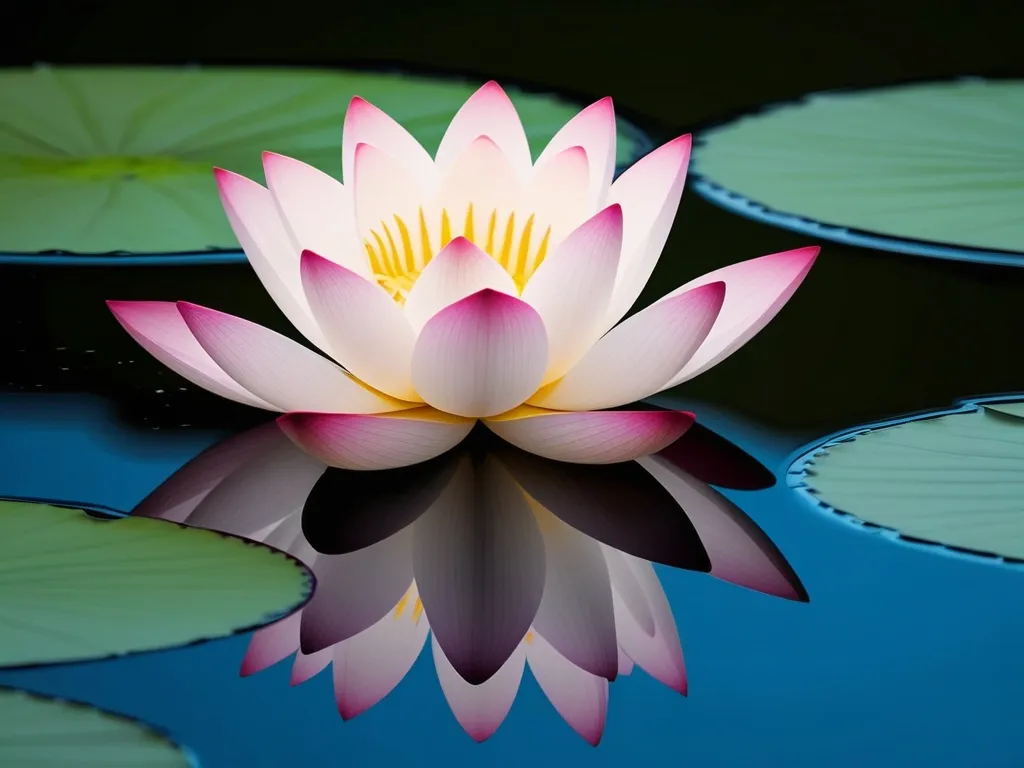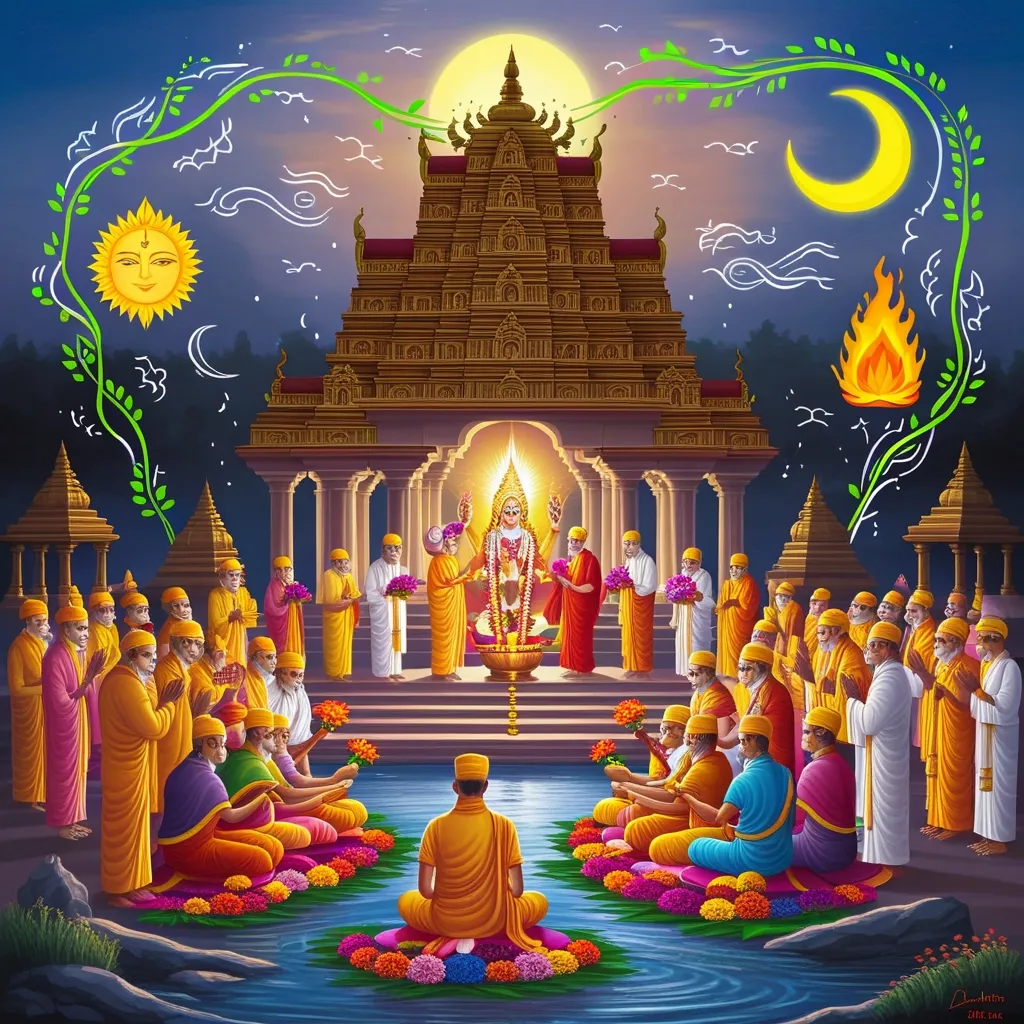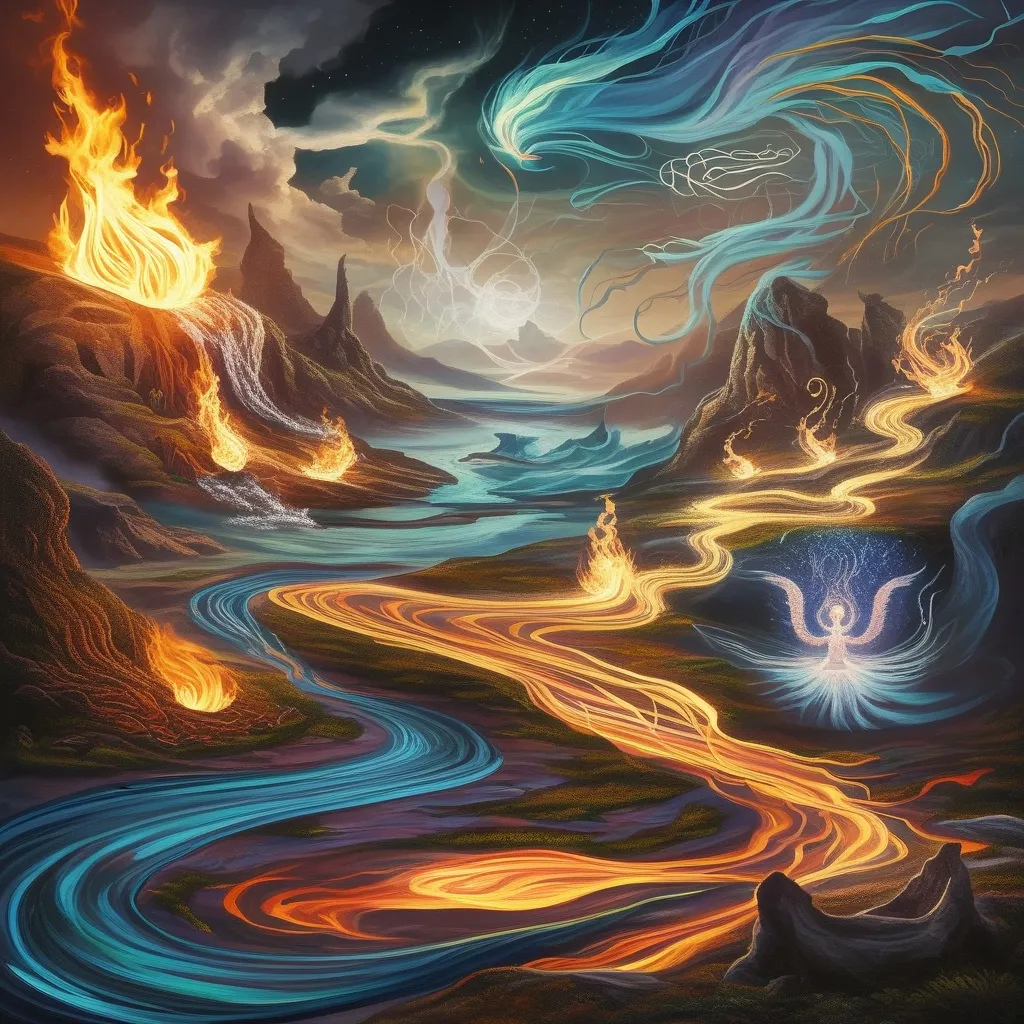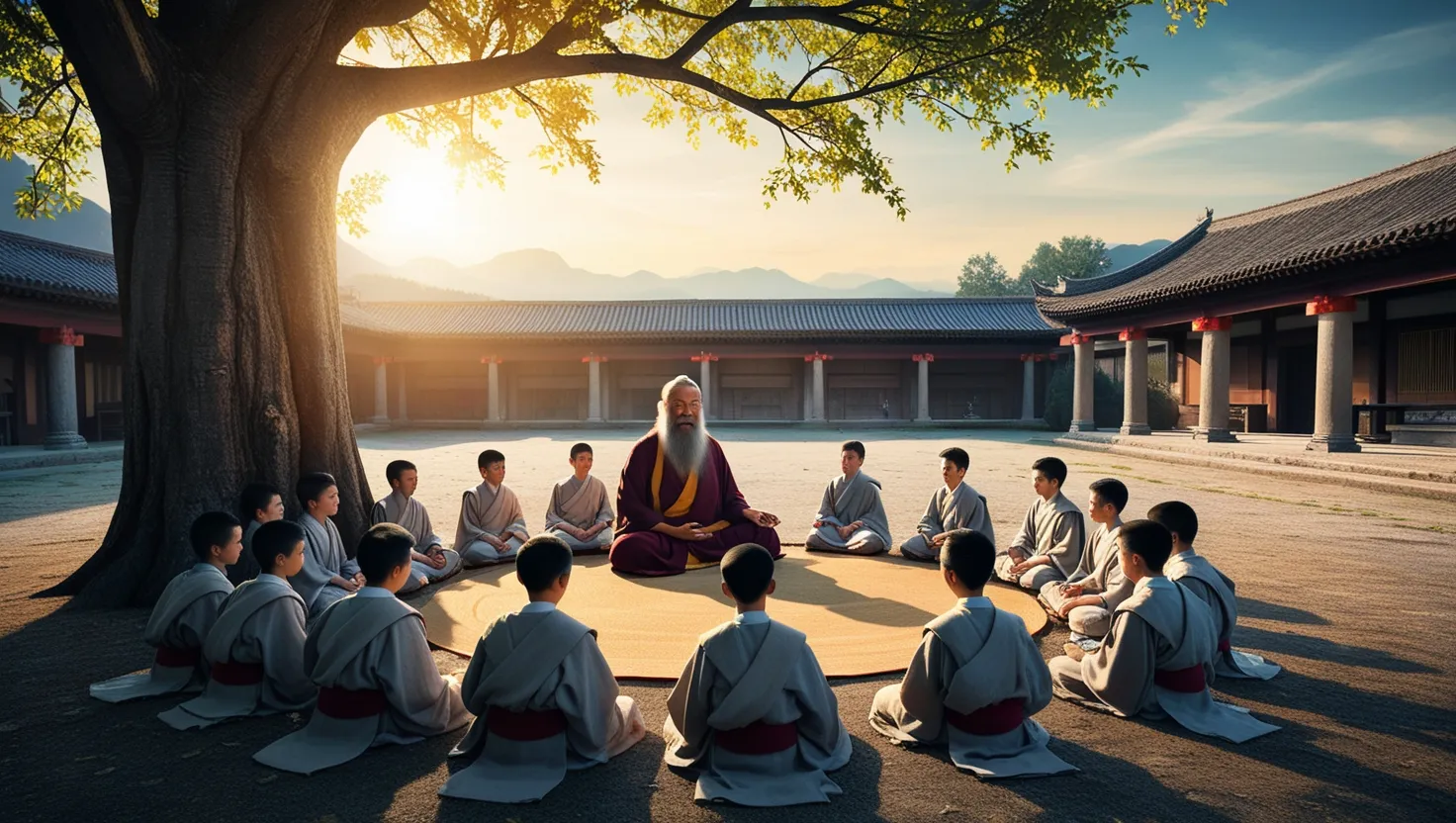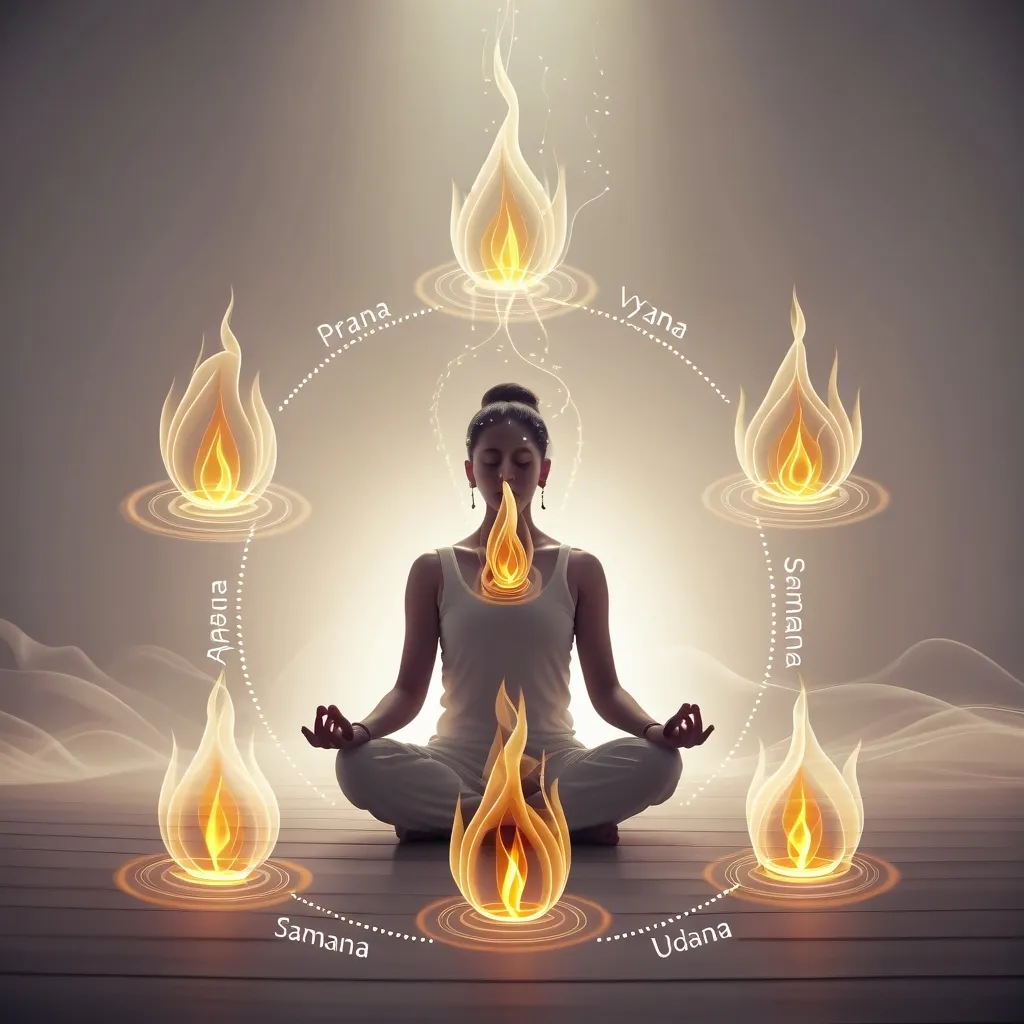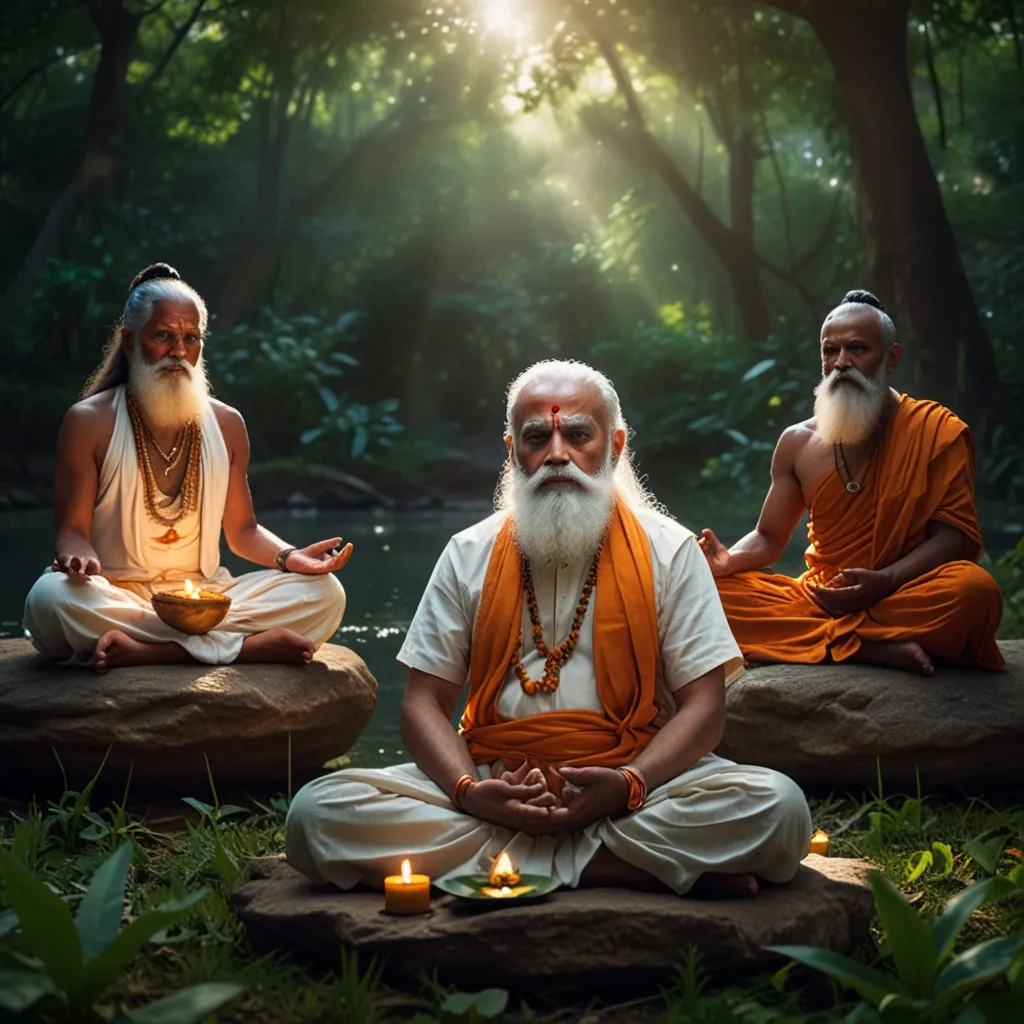Karma: The Cosmic Balance Sheet of Life
Ever wondered why some people seem to have all the luck while others can’t catch a break? Well, in Hinduism, there’s a nifty little concept called karma that might just explain it all. It’s like a cosmic balance sheet, keeping track of every thought, word, and deed.
Karma isn’t just some ancient mumbo-jumbo. It’s a practical guide to living your best life. Think of it as the universe’s way of saying, “What goes around, comes around.” Every action you take, every decision you make, it all adds up. It’s like you’re constantly writing your own story, and karma is the invisible ink that ties it all together.
Now, don’t get it twisted. Karma isn’t about some celestial being sitting up there, dishing out punishments and rewards. It’s more like a natural law, like gravity. You jump, you fall. You do good, good comes back to you. Simple, right?
But here’s where it gets interesting. Karma isn’t just about your actions. It’s about your intentions too. You could be doing all the right things, but if your heart’s not in the right place, well, karma’s got your number. It’s like trying to cheat on a test - you might get the right answers, but you’re not really learning anything.
So, how does this karma thing work in real life? Let’s break it down. There are different types of karma, each playing its part in shaping your journey.
First up, we’ve got Sanchita Karma. Think of this as your karmic baggage from past lives. It’s like that junk drawer we all have - full of stuff we’ve accumulated over time, some good, some not so good. You can’t get rid of it all at once, but you can work on it bit by bit.
Then there’s Prarabdha Karma. This is the karma you’re dealing with right now. It’s like your to-do list for this life. These are the lessons you need to learn, the experiences you need to have. It’s the universe’s way of saying, “Here’s what you signed up for this time around.”
Last but not least, we’ve got Kriyamana Karma. This is the karma you’re creating right now, with every choice you make. It’s like you’re constantly planting seeds. Some will sprout in this life, others in the next. The cool thing is, you’ve got the power to choose what kind of seeds you’re planting.
Now, let’s talk about dharma. If karma is the what, dharma is the how. It’s your moral compass, your personal guidebook for navigating life. Dharma isn’t just about being a good person - it’s about being the best version of yourself. It’s about doing your duty, playing your part in the grand cosmic drama.
Here’s where it gets tricky. Sometimes, your dharma might seem to conflict with what you think is right. Take the classic example of Arjuna in the Bhagavad Gita. As a warrior, his dharma was to fight, even if it meant fighting his own family. Talk about a tough call!
But here’s the kicker - following your dharma isn’t always easy, but it’s always right. It’s about doing what needs to be done, not what you want to do. It’s like eating your veggies when you’d rather have ice cream. Not fun, but good for you in the long run.
Now, let’s get personal for a minute. Have you ever had one of those days where everything just seems to go wrong? You stub your toe, spill your coffee, miss your bus - the works. Well, in the karma worldview, that’s not just bad luck. It’s the universe cashing in some of those karmic checks you’ve been writing.
But here’s the good news - you’re not stuck with bad karma. You’ve got the power to change it. Every act of kindness, every selfless deed, every positive thought - it all adds up. It’s like making deposits in your karmic bank account. The more you put in, the more you’ll have when you need it.
And that brings us to one of the coolest things about karma - the idea of Nishkam Karma. This is about doing good without expecting anything in return. It’s like being kind to a stranger, not because you want something, but just because it’s the right thing to do. This is the highest form of karma, the kind that really moves the needle on your cosmic balance sheet.
On the flip side, we’ve got Sakam Karma. This is when you do good things, but with an ulterior motive. Like being nice to your boss because you want a raise. It’s not bad per se, but it’s not going to earn you as many karmic brownie points.
Now, let’s talk about the big picture. In Hinduism, karma isn’t just about this life. It’s part of a bigger cycle called samsara - the wheel of birth, death, and rebirth. Your karma determines where you’ll end up in your next life. It’s like a cosmic game of snakes and ladders. Good karma moves you up, bad karma slides you down.
But the ultimate goal isn’t to keep playing the game. It’s to win it. In Hindu philosophy, that’s called moksha - liberation from the cycle of rebirth. It’s like graduating from the school of life. No more tests, no more homework, just pure bliss.
So, how do you get there? By balancing your karma, fulfilling your dharma, and ultimately, realizing your true self. It’s not easy, but hey, nothing worth doing ever is, right?
In the end, karma is about taking responsibility for your life. It’s about understanding that your actions have consequences, not just for you, but for everyone around you. It’s about living mindfully, making conscious choices, and always striving to be better.
Think of it this way - every day, you’re writing a page in the book of your life. Karma is making sure that story makes sense, that every action has a reaction, every cause an effect. So make it a good story. Make it a story worth reading.
Remember, in the grand cosmic scheme of things, you’re not just a passenger - you’re the driver. Your karma is your roadmap, your dharma is your compass. Where you end up? Well, that’s up to you.
So next time you’re faced with a choice, big or small, take a moment. Think about the ripples your action will create. Are you adding to the world’s light or its darkness? Are you moving closer to your true self or further away?
Because at the end of the day, that’s what karma is all about. It’s not about judgment or punishment. It’s about growth. It’s about learning. It’s about becoming the best version of yourself, one choice at a time.
So go ahead, make some good karma today. Be kind, be compassionate, be true to yourself. Because in this cosmic balance sheet of life, every little bit counts. And who knows? That small act of kindness you do today might just be the start of something beautiful.
